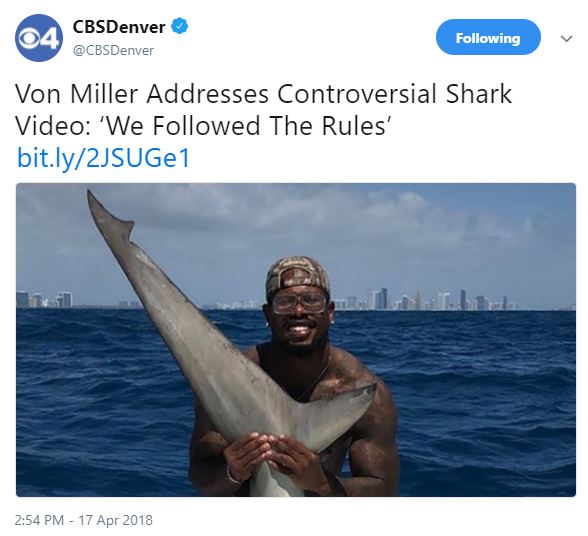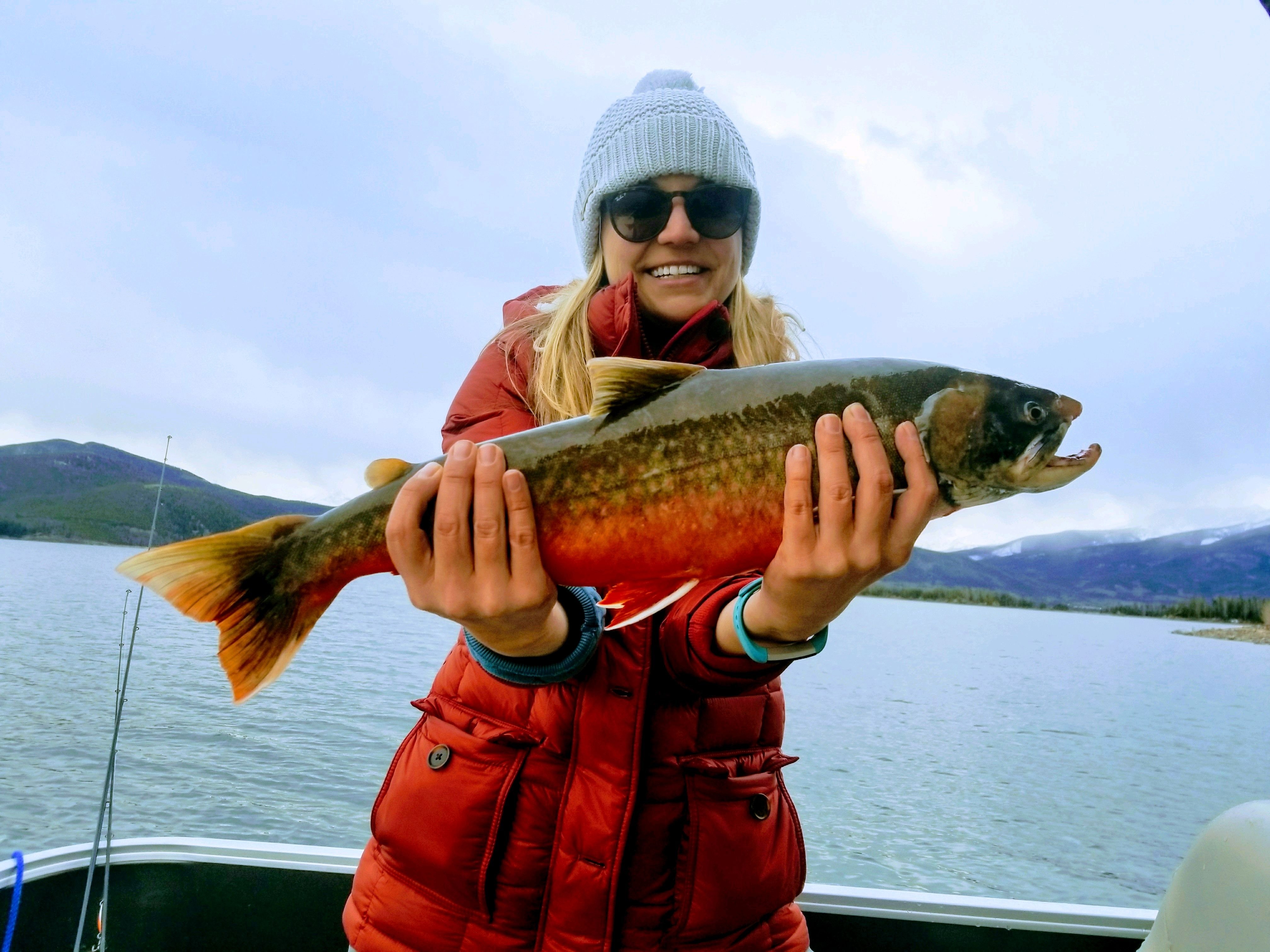
Don’t be a hammerhead! Know the fishing and boating rules
The picture was so extraordinary, many people thought it had to be a fake.
It wasn’t, and neither is the trouble Denver Broncos all-pro linebacker Von Miller could face for sacking a hammerhead shark in Florida earlier this month.
And while you won’t encounter a hammerhead shark in any of Denver Water’s reservoirs, there are still plenty of big fish in our waterways.
So, whether you plan on landing the next big one, or if you’re just heading out for a fun day in the sun, all we ask is that you follow the rules.
For this, we turn to our partners at Colorado Parks and Wildlife. They manage and regulate our waterways for the enjoyment and safety of recreationalists and well-being of wildlife.
While flies and lures are allowed in all of our fishing holes, it is also important to know the specific rules of your fishing location. For example, did you know live aquatic bait is not allowed in fishing holes above 7,000 feet?
It’s also important to know if you’re at a catch and release location. The CPW website has information on which fisheries are catch and release and which are catch and take.
“If you’re going to catch and take, please eat the fish. We don’t have a problem with that,” said Brandon Ransom, manager of recreation for Denver Water. “It’s sad to see those rare occasions when people don’t take the fish home and eat it.”
For those who prefer being out on the water, five of our reservoirs (Antero, Williams Fork, Dillon, Eleven Mile Canyon and Gross) are open to boats, kayaks, canoes, stand-up paddleboards and multi-chambered float tubes (while wearing waders). Make sure you know CPW’s rules for boating before you go.
We also advise you to allow extra time for aquatic nuisance species boat inspections.
“ANS is a really big deal because of the potential ramifications of infestation,” Ransom said. “ANS can result in clogged or damaged pipes, intake structures or other infrastructure damage. They also can disturb the ecosystem in the reservoir.”
Denver Water reservoirs open to motorized boating have inspection stations for incoming and outgoing boats. Therefore, there are strict launching hours at our facilities. Boating at each of these reservoirs will be open by Memorial Day weekend.
Please note: If you come across a hammerhead shark at any our facilities, do not catch it and definitely don’t pose with it. Instead, contact the authorities — it shouldn’t be there.


